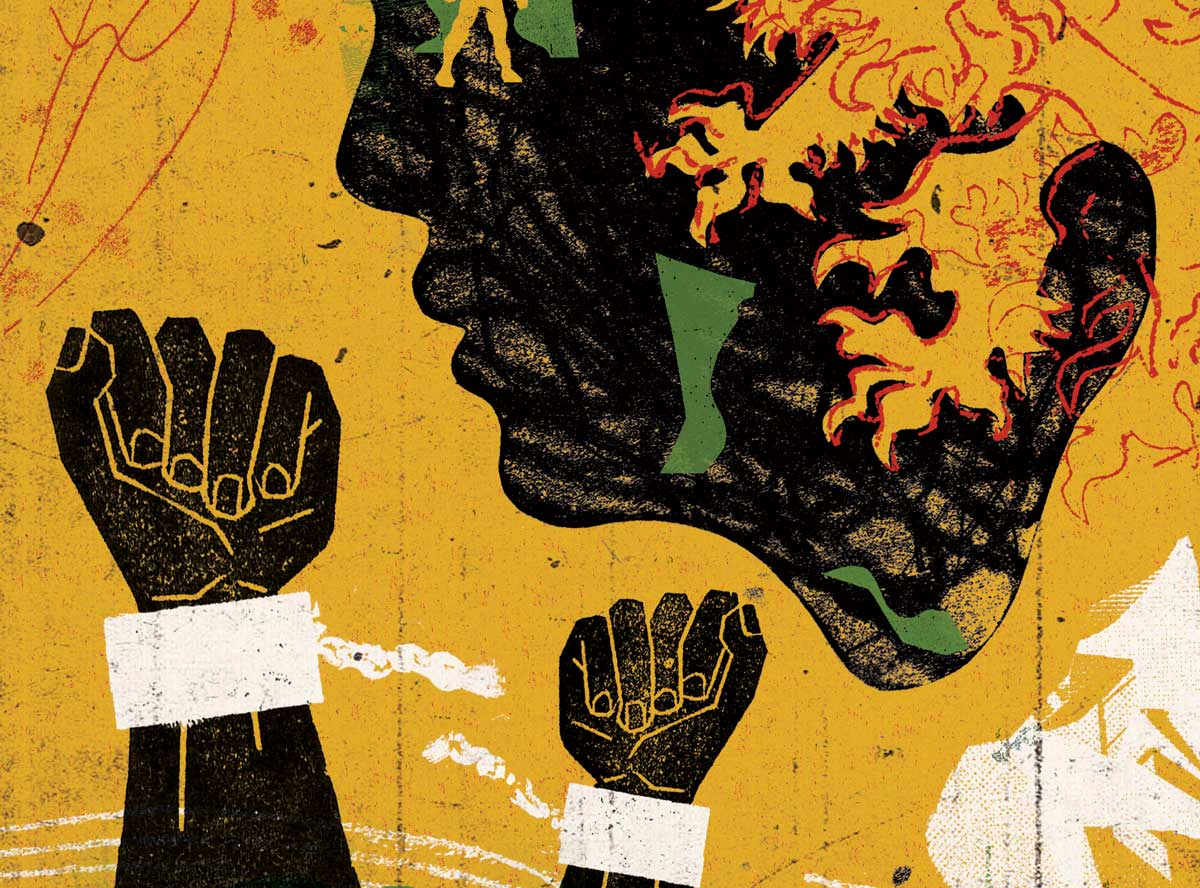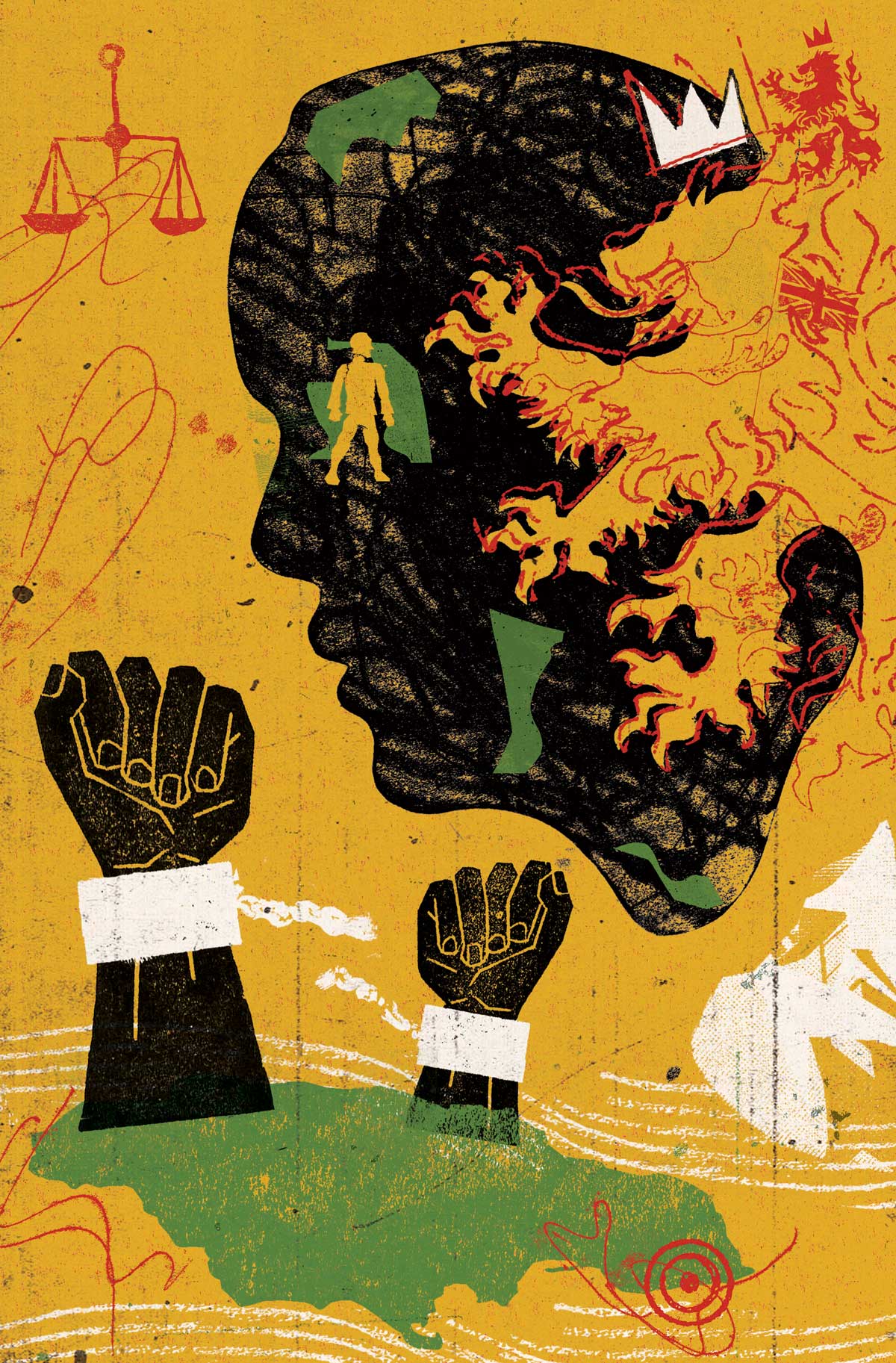Colonial Mentalities | History Today - 9 minutes read

According to the historian Hilary Beckles, British colonial state forces killed more Black people when suppressing revolts in the Caribbean in the 50 years after slave emancipation in 1838 than in the 50 years leading up to it. Emancipation brought compensation for former slaveowners but not for the enslaved. The extreme inequality between a wealthy, politically powerful white minority and a Black and mixed-race majority with little or no property continued after emancipation. In Jamaica, British Guiana, St Vincent and Barbados, many people freed from slavery (freedpeople) burned plantations and seized land and resources in protest against these conditions in which Black lives barely mattered. The most infamous of these protests and their aftermath were the events in Morant Bay, Jamaica, in 1865. The suppression of a rebellion, killing of rebels and protestors and the subsequent failure to punish the colonial agents responsible changed politics, racial ideologies and Empire in Jamaica and Britain.
Politics and violence
After the ending of compulsory apprenticeship for the enslaved in 1838, white former slaveowners demanded that the local legislature, the House of Assembly, and the Colonial Office in Whitehall approve new laws that would force the freedpeople to work on plantations as contract labourers. These new laws criminalised alternative work choices, such as land cultivation or petty trading without formal contracts. For contract work, any breach of terms by the employee, but not the employer, was also punished under criminal law. The laws restricted freedpeople’s mobility and work choices.
As these laws and a stagnating economy increased political tensions, prominent political opposition to colonial governance emerged. One leader was the assemblyman George William Gordon, the son of an enslaved woman and white plantation-owning enslaver. Gordon was a vocal opponent of Edward Eyre, Jamaica’s governor from 1864. Gordon, and others, alleged that Eyre and his officials had fraudulently commissioned a toll road and tramway project between Kingston and Spanish Town. In 1865, Gordon helped organise meetings across Jamaica to discuss grievances with infrastructure projects, the lack of investment in education and job opportunities and the discriminatory enforcement of laws.
Gordon was part of the radical political opposition to Eyre. Other radicals included newspaper publishers, spiritual leaders in belief systems, such as Native Baptism, and women workers in urban areas. Together, these groups provided freedpeople with information networks, material resources and ideologies to oppose Eyre.
In October 1865, the tensions between Eyre’s administration and his various opponents produced a flashpoint. Some residents of the eastern parish of St-Thomas-in-the-East protested against perceived injustices in the local court. The protestors resisted the police when they tried to arrest them. Paul Bogle, a Native Baptist deacon, led a raid on the local police station to seize weapons. Over several days, hundreds of rebels killed targeted individuals held responsible for the worst injustices of colonial rule and seized property, spreading northwards and westwards from Morant Bay.
Governor Eyre called in the army to launch a counter-insurgency. He requested that the House of Assembly suspend its legislative authority so that he could govern with emergency powers, putting parts of the island under martial law. It was unclear whether martial law was recognised in Britain or its empire, or if the governor had authority to invoke it. Nonetheless, it was a fateful decision: the army killed at least 439 people in suppressing the rebellion, some of whom had surrendered to the authorities and others who had never engaged in armed resistance. Colonial forces also flogged hundreds of people and burned down many homes.
The army arrested assemblyman Gordon in Kingston, which was not under martial law, and transferred him to Morant Bay. Even though the rebellion was over, martial law was still in force there. State authorities could try him by court martial with officers rather than a jury of his peers deciding his fate. The court found him guilty of high treason and sedition based on spurious evidence related to his participation in the political meetings earlier in the year. The authorities executed him on 23 October.
Culture war
Debates over the causes of rebellion and the authorities’ actions caused a culture war in Britain. Prominent intellectuals established rival committees. The Eyre Defence Committee, led by the writer Thomas Carlyle, sought to protect Eyre’s reputation and raise funds for his possible legal defence. The Jamaica Committee, led mainly by the MP and philosopher John Stuart Mill, fought to widen an official investigation into violent suppression in Jamaica, to bring Eyre and other perpetrators to justice and to increase public opposition to colonial oppression.
The Eyre Defence Committee relied on support from the literary, propertied and church establishment. Carlyle was its most virulent member. He had published a notorious anti-Black diatribe in 1850 that demanded that freedpeople continue serving white sugar plantation owners. Sixteen years later, Carlyle lionised Eyre as saving not just Jamaica but ‘all our West Indian Possessions’. Carlyle and his fellow writer, John Ruskin, campaigned for financial support, leading Charles Dickens and Alfred Lord Tennyson to pledge money. Dickens opposed ‘that platform-sympathy with the Black – or the Native, or the Devil’, which he felt distracted attention from the poor in Britain. He seemed unaware, or perhaps his anti-blackness prevented him from seeing, that many working-class people were protesting against Eyre’s actions, too.

As well as the working class, the Jamaica Committee drew membership and support from political radicals and scientists, including Charles Darwin, his scientific ally Thomas Huxley and the barrister Frederic Harrison. When Darwin’s son, William, dared to criticise the Jamaica Committee, his father told him to ‘go back to Southampton’, the port where Eyre had landed back in Britain. Although there were some differences in strategy and outlook, the Committee members all believed that Eyre must fall.
The Jamaica Committee published eight pamphlets that criticised colonial policy in Jamaica, Eyre’s actions and martial law. It tried five times to bring a court case against Eyre for murder and high crimes in office, but each attempt failed to result in an indictment for trial. The Committee brought a private prosecution for murder against two officers, Alexander Nelson and Herbert Brand, who had participated in Gordon’s court martial. The grand jury did not find a charge to answer. In 1868, Alexander Phillips, a Black man whose property was destroyed by the colonial counter-insurgency, brought a private prosecution against Eyre in England for wrongs committed against his person and property, with the Committee’s support. The case failed, because the House of Assembly in Jamaica had passed an act preventing compensation for any state actions in suppressing the rebellion. Perhaps the Committee’s most tangible success was to question the legality of martial law, making it less likely that colonial governors would declare it in future.
The Committees’ culture war exposed some developing faultlines among British intellectuals. Eyre and the Defence Committee membership overlapped with the Anthropological Society of London (ASL), which claimed that different racial groups had different origins as humans and different capacities. In 1866, the ASL’s co-founder told the annual meeting that ‘the merest novice in the study of race-characteristics ought to know that we English can only successfully rule either Jamaica, New Zealand, the Cape, China, or India, by such men as Governor Eyre’. In contrast, the Jamaica Committee and its supporters aligned more with the Ethnological Society of London, which advocated a common point of origin for all humans. This belief produced a ‘liberal’ view that Black people would become the ‘civilised’ equal of white people through imperial guidance.
On neither view were Black people considered the equal of white people; some form of imperial rule was necessary. Historians disagree about how far the growing pseudo-scientific explanations of racial hierarchy continued, or diverged from, 18th-century ideologies of civilisational stages. Nonetheless, the Eyre controversy intensified the intellectual faultlines and made anti-Black authoritarian rule more appealing to many white Britons in the later 19th century.
Continued failure
The Morant Bay Rebellion and its suppression resulted in the metropolitan decision to abolish the House of Assembly and govern Jamaica directly. Without electoral representation, the formal political power of Black and mixed-race subjects declined. Paul Bogle and George Gordon became heroes of Jamaica’s anticolonial independence struggle. In Britain, Eyre was never appointed to another colonial office.
In the longer term, the Eyre culture war intensified British attitudes that treated Black colonial subjects as a problem. Most recently, discrimination against the Commonwealth citizens of the Windrush generation has demonstrated how British state institutions still deny full citizenship rights to certain Black Britons. These institutions often treat Black people as more suited to confinement than citizenship.
The most virulent aspects of the Eyre Defence Committee’s racial ideologies are still alive, too. There is no scientific basis for racial subgroups within the single human race. Racial classifications vary between and within societies according to power, language and cultural meanings. Despite this, many intellectuals have persisted in creating racial categories and measuring them according to a single scale, such as IQ, to try to demonstrate significant variation between groups. This research has contributed to eugenics and experiments in sterilisation and infectious disease. It helps to continue to underpin discrimination against Black people from childbirth to the operating table, from the classroom to the job market, and from property ownership to prison. Recent scandals attest to the presence of these pernicious views even among government advisors and university researchers. We still inhabit a world harmed by white supremacy, one that subjects many Black people to deprivation and death. How much longer will it last?
Jake Subryan Richards is a historian of law, empire and the African diaspora and Assistant Professor of History at the LSE.
Source: History Today Feed